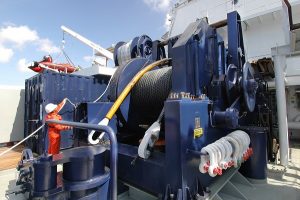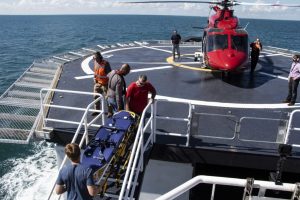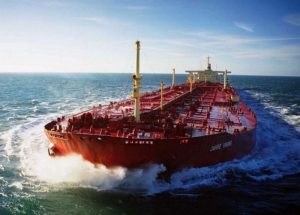
Despite being ranked among most profitable occupations, jobs at sea are regularly included in the top of most dangerous professions in the world. Cranes and winches; slips, trips and falls; working mechanisms; high-voltage equipment, onboard fires and welding – here is the list of main causes for deaths and injuries at sea.
Meanwhile, very few seafarers pay close attention to those clauses in contract that deal with such morbid topics as Injury Compensation, Disability or Sick Pay. At the same time, according to the Annual Overview of Marine Casualties and Incidents 2018, there have been 20 616 accidents involving ships in the European waters, 6 812 seafarers have been injured and 683 people have been killed during the period from 2011 to 2017.
Official statistics assures that there is a steady decrease in the number of onboard accidents. However, they still occur here and there; so it’s prudent to study your rights in advance and have own contingency plan in case of an accident on board. Moreover, make sure that your next of kin knows what do in case of an accident on board either.
What Documents are required to Claim Compensation?
The maritime law says that whenever there is an incident on board, the following documents must be completed:
- Log record;
- Vessel Incident Report (as per Vessel Procedures);
- Incident Investigation Form (as per some Company Procedures);
- In the event of a serious personal injury or death of a crew member, local authorities are taken on board in the nearest port of call.
Therefore, a seafarer who has sustained a personal injury as a result of an incident (or his/her next of kin) should request for a copy of these documents in order to confirm that the incident has indeed occurred on board. It is also important to keep the SEA and all medical documents confirming the diagnosis and expenses incurred.
Vessels covered by the ITF Collective Bargaining Agreements (CBA)
According to the new MLC 2006 amendments that came into force in January 2017, shipowners must enter into agreements with insurance companies to guarantee payment of compensations to seafarers or their families in the event of severe injuries on board, death in service or vessel abandonment. There are 79 states that have ratified convention with these amendments, so seafarers’ rights are now protected better than ever.
In addition to the MLC 2006, the right for compensation in case of an injury sustained on board is also guaranteed by the Collective Bargaining Agreement (CBA) and Seafarer’s Employment Agreement (SEA). The conditions of the latter may vary from one company to the other; but it should contain relevant paragraphs or references to the articles of the CBA which specify the amount of payments and compensations in case of illness, injury; cases when a seafarer has gone missing or lost his life during the employment for the company.
Medical Attention and Sick Pay Conditions
Thus, according to the ITF Standard Collective Agreement, a seafarer who has sustained an injury at sea or is in need of medical attention:
-

Image Credits to Inverse Must be delivered to the nearest hospital immediately at the company’s expense and is entitled to a continue his/her treatment abroad for as long it is required.
- Should seafarer’s condition allow his/her repatriation, the seafarer is entitled to continue treatment at his/her place of residence at the company’s expense for up to 130 days subject to the provision of supporting medical documents.
- Starting from the moment a seafarer is discharged from the vessel in order to receive a medical attention, he/she should be paid a pro-rata basic wage, plus overtime. These payments shall continue until a seafarer is repatriated at the company’s expense on the grounds described above.
- Following the repatriation, a seafarer is entitled to a sick pay at the rate equivalent to his/her basic wage for a period up to 130 days subject to provision of the relevant medical documents.
- However, in case of incapacity as a result of onboard accident, the sick pay in the amount of basic wage shall be paid until the full recovery of the injured seafarer or up to the moment a permanent disability is determined by a qualified doctor.
Injury Compensation – How Much Should You Claim?
If a seafarer sustains a personal injury as a result of an accident on board, he/she is entitled for compensation from the shipowner. The amount of the payment is determined in percentage from the permanent disability (100%). At present, the maximum rate of disability compensation is almost US$ 175,000 for Senior Officers, US$ 140,000 for Junior Officers and US$ 105,000 for Ratings (unless more favorable conditions are provided).
Almost all possible injuries that can be suffered onboard are provided for in Appendix 6 of the ITF Collective Bargaining Agreements. For example, loss of one thumb constitutes 25% degree of total disability. The compensation will be calculated accordingly.
Should the degree of incapacity exceed 50%, the seafarer is entitled to a full (100%) payment. Moreover, if disability degree of is below 50%, but a competent doctor confirms that a seafarer is unfit for sea service in any capacity, the company shall provide a 100% compensation either.
The company’s obligations for compensation don’t apply in case it is proven that the injury was received by the seafarer:
- Intentionally;
- As a result of willful misconduct;
- Not during his time on board;
- Seafarer has concealed the existing illness or incapacity when entering into the SEA with the shipowner.
Loss of Life – Death at Sea
Should a seafarer die during his employment for the company, the shipowner must pay compensation to a seafarer’s next of kin and his/ her dependent children under the age of 18 (maximum 4 people) regardless of the cause of death (excluding suicides on board). The amount of payment to as per ITF-IMEC IBF International CBA 2019-2022 are as follows:
- US$ 104,866 to the next of kin;
- US$ 20,974 to each child under 18 years old, unless higher compensation is agreed.
- The shipowner also must meet reasonable burial and body transportation expenses.
If a Seafarer goes missing at sea, the family is entitled to the same amount of compensation as in case of death on board. There are only two exceptions – if a Seafarer has disappeared in port or has gone missing as a result of suicide. In this case, the Company is exonerated from the all financial liabilities.
Vessels ungoverned by the ITF Collective Bargaining Agreement (CBA)

If your vessel is not covered by the CBA, pay particularly close attention to clauses devoted to Medical Care on Board, Compensation for Personal Injuries, Sick Pay, etc. when signing your SEA. Names of titles may vary, but the contract must include some provisions one can refer to when claiming for payments in case of illness or an accident on board.
When a Seafarer sustains a personal injury while at sea or simply requires medical attention, the shipowner should assume the same liabilities as in case with the vessels covered by the CBAs. However, the absence of Collective Agreement makes it easier for the company to avoid fulfilling their duties.
Therefore, if you are denied a copy of Vessel Incident Report or not provided with medical assistance when required, you can submit an official complaint to your vessel’s flag administration. The MLC 2006 has developed a special form for these purposes. You can file a complaint through the Master of the vessel or port authorities. However, please mind that this method proves to be efficient under the flag of states that have ratified the Convention only.
If you require medical attention urgently, contact the Consul of your country in your next port of call. His authority includes control over provision to the rights and freedoms of citizens of his country during their stay abroad. Authorities will assist you with medical help and repatriation.
In the long term perspective though, it is better to engage a help of maritime lawyers. They will advise on how to claim compensation from the shipowner in full and with minimum fuss. Many solicitors work for the percentage from the obtained compensation, so one should not be afraid of exorbitant bills. Taking into account that it might be necessary to hold a trial under a foreign jurisdiction, it will be impossible to handle the case without the help of professionals. The key point is to keep all medical records and put your claims forward as soon as possible, since in some countries the limitation period doesn’t exceed 6 – 12 months.

